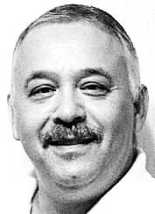Featured News - Current News - Archived News - News Categories
My View - Our country's future is in very good hands
by kcapozziFrom The Buffalo News: MY VIEW
Our country's future is in very good hands
Paul Chimera, a
college instructor from Amherst, has great faith in the leaders of tomorrow. Paul was featured as one of the Just for Kids - Kids College
presenters.

Judging from what tumbled eloquently out of the mouths of two local groups of elementary school kids recently, the future of our country is locked on success.
In September, I
presented "Fun With Words" workshops to mainly elementary school students in
the Williamsville School District. It was under the aegis of an afterschool
enrichment program.
But I never imagined the
chasm between my expectations and the level of the kids' erudition. Will they
know what a noun is? How to use a dictionary? What punctuation means? I wasn't
sure if I'd be speaking over their heads.
One module involved
displaying an eye-catching painting by Salvador Dali, in which a figure knelt
on a dusty lane, and whose impossibly long outstretched leg looked like a
table, complete with a wine bottle and glass atop it.
The children were asked
to jot down whatever words and feelings came to mind. There were no right or
wrong answers. The idea was to build on their ability to describe what they
saw, employing details to make their writing richer and more meaningful.
I expected words like
"cool," "strange" and "different," and some students wrote down those very
adjectives. But never did I expect one boy to offer "mysterious." Or the girl
who wrote down "disturbing." Or the kid who not only chose the word "dark" (the
central figure was largely in black), but then described the uneasy mood the
picture evoked.
"Are you sure you're not
college students?" I kidded, but with real surprise over the sophisticated
nature of their precocious responses.
A second module, dealing
with word oddities, included a segment on palindromes — words and sentences
that are spelled the same forward and backward. "Mom" is a simple one. A more
elaborate example is "was it a car or a cat I saw?" But before I could cite others,
a student raised his hand, defined what a palindrome is, then proudly shouted,
"race car!" A definite palindrome.
As we moved on to words
spelled the same but having different meanings, there was no hesitation among
these eager-to-learn youngsters. Their intellectual curiosity and raw
enthusiasm was uplifting. "We 'tear' a perfectly good pair of pants," I
continued, "but then shed a . . ." "Tear!" one child enthused. She completed
another example, demonstrating that she well understood that a bandage is
"wound around a wound."
The school site leader
had announced before I began that what was assembled before me was an astute
and talented group of students, eager to participate and have fun. She promised
I'd find them as quick as a whip.
They proved her correct
— forcing me to rethink my expectations of students in this age group. I
admitted what things were like when I was in the third grade a half a century
ago; we were lucky to distinguish between "red" and "read."
These days, kids know
what palindromes are, and can cite examples without skipping a beat.
Perhaps the question
that impressed me the most was from a boy who, upon contemplating the Dali
picture, asked, "What was it that the illustrator was trying to convey in this
picture?"
I hesitated in genuine
amazement at so profound a question from so young a child. Dali, I explained,
was all about painting one's dreams. And, I thought, whatever these kids can
dream can surely become their reality someday. The eventual leaders of tomorrow
really are sitting in our classrooms today.




